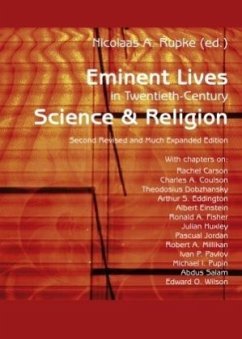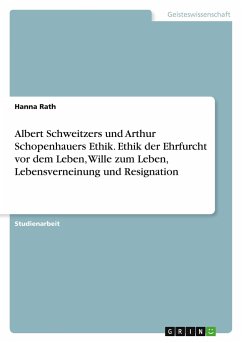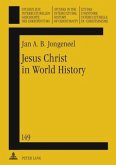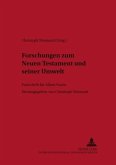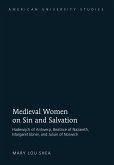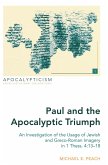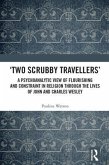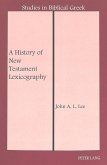Can science and religion coexist in harmony? Or is conflict inevitable? In this volume an international team of distinguished scholars addresses these enduring yet urgent questions by examining the lives of thirteen eminent twentieth-century scientists whose careers were marked by the interaction of science and religion: Rachel Carson, Charles A. Coulson, Theodosius Dobzhansky, Arthur S. Eddington, Albert Einstein, Ronald A. Fisher, Julian Huxley, Pascual Jordan, Robert A. Millikan, Ivan P. Pavlov, Michael I. Pupin, Abdus Salam, and Edward O. Wilson. The richly empirical studies show a diversity of creative engagements between science and religion that defy efforts to set the two at odds.
"The strength of Rupke's volume lies both in the judicious selection of eight particularly interesting scientists whose stories blend well together and in his recruitment of eight brilliantly qualified authors ... [T]he truly remarkable feature of this collection is the uniformly high standard of presentation in all these diverse and engaging biographical essays." (Owen Gingerich in Perspectives on Sciences and Christian Faith on the first edition)
"[T]he essays show scientists engaged as public intellectuals and are therefore relevant to scholars interested in science and religion in public life." (Ruth Barton in History and Philosophy of the Life Sciences on the first edition)
"[T]he essays show scientists engaged as public intellectuals and are therefore relevant to scholars interested in science and religion in public life." (Ruth Barton in History and Philosophy of the Life Sciences on the first edition)

